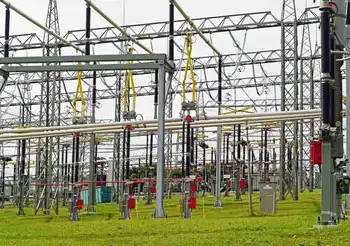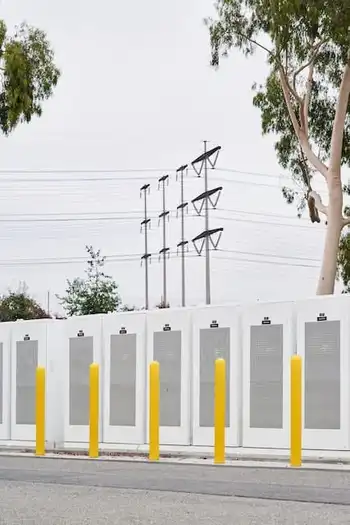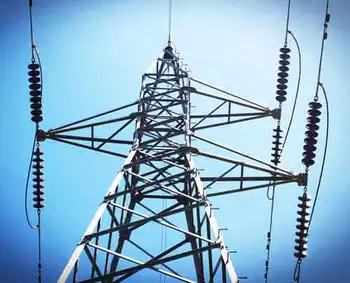Being down in the dumps can pay dividends
OTTAWA, ONTARIO - Most Members of Parliament arrive in Ottawa with a pet project. For Bob Mills, who was part of the original Reform Party wave of 1993, it was all about garbage.
Throughout his career, he and his wife Nicole have traveled the globe researching ways to turn garbage into clean energy.
Now, on the eve of his political retirement, the affable Conservative MP from Red Deer, Alta., has won a small victory.
When the government released its detailed framework for regulating industrial greenhouse-gas emissions, it also announced that environmental projects would be able to earn carbon credits. Those credits could then be sold to companies who need them to comply with the regulations.
In time, the government's move will open up an entirely new market in the country for individuals, businesses or municipalities to make money by reducing emissions.
These projects could include large tree-planting operations or new solar power plants. But prominent among the government's examples of qualifying projects are efforts to turn garbage into clean electricity - the very subject of the Mills' obsession.
"I think he was quite excited about it," said Nicole Mills, who started touring the world's dumps with her husband 28 years ago, studying each new twist in the emerging technology. "He's been working on this for years and years and flippin' years."
A pilot gasification plant has been built in Ottawa that uses extreme heat to break down garbage into a clean gas that is then used to create electricity in a similar way to natural gas. The technology is seen as a low-emission option to avoid landfills and produce electricity without mining fossil fuels.
The company behind the project has plans to build another in the Mills' hometown of Red Deer. The MP hopes the extra carbon credit incentive will see traditional landfills become a thing of the past.
"Our biggest city dumps its garbage in a landfill, when they should be gasifying it and producing electricity," Mr. Mills said.
"It's sort of like when we talk about Canada and dumping raw sewage into the ocean and everybody just shudders that an industrialized country would do that. I think garbage is the same. Putting it in a landfill, where it can seep into your aquifers and release into your air, is just as bad as dumping sewage into an ocean or a river."
Mr. Mills announced this month that he won't run in the next election, bringing an end to a 15-year political career. As the environment critic for the Official Opposition from 2001 to 2006, Mr. Mills took a lot of heat for criticizing the Kyoto Protocol on greenhouse gases. Mr. Mills insisted throughout that he believed global warming was a serious issue, but felt Kyoto was too flawed to make a difference.
Environmentalist Aaron Freeman, a long-time follower of the House of Commons environment committee that Mr. Mills now chairs, said the MP's collaborative style has earned him the respect of those who may disagree with his political views.
"He's certainly one of the most enlightened MPs in the caucus on the environment and has been for a long time," Mr. Freeman said. "He was always operating out of a place of integrity. I had all kinds of disagreements with his views, but I never questioned that he was operating out of principle."
As for the Mills' foreign travels, the couple has visited dump sites throughout North America as well as Denmark, Spain and a quick tour last Christmas while in Maui.
"She puts up with it because she gets to go somewhere different," Mr. Mills said. "Denmark was the worst, because I promised her that the shopping would be interesting and we never got back to our hotel before nine o'clock any night ... So yeah, she's a long-suffering garbage tour person."
Interviewed later by phone, Ms. Mills acknowledged she now shares her husband's excitement in the possibilities of garbage - but the first visits were a challenge.
"The odours would get to you and it was pretty bad," she said. "But in the last few years that we've been doing this - when we were in Barcelona for instance and we went to the landfill site there - well I mean, it was so clean that there was little if any odour. And that to me is what was the most amazing of all of the garbage facilities that we've gone to see."
Related News

Fixing California's electric grid is like repairing a car while driving
LOS ANGELES - Mark Rothleder, Chief Operating Officer and Senior Vice President at the California Independent System Operator (CAISO), which manages roughly 80% of California’s electric grid, has expressed cautious optimism about meeting the state's ambitious clean energy targets. However, he acknowledges that this journey will not be without its challenges.
California aims to transition its power system to 100% carbon-free sources by 2045, ensuring a reliable electricity supply at reasonable costs for consumers. Rothleder, aware of the task's enormity, likens it to a complex car repair performed while the vehicle is in motion.
Recent achievements have demonstrated California's ability to temporarily…




